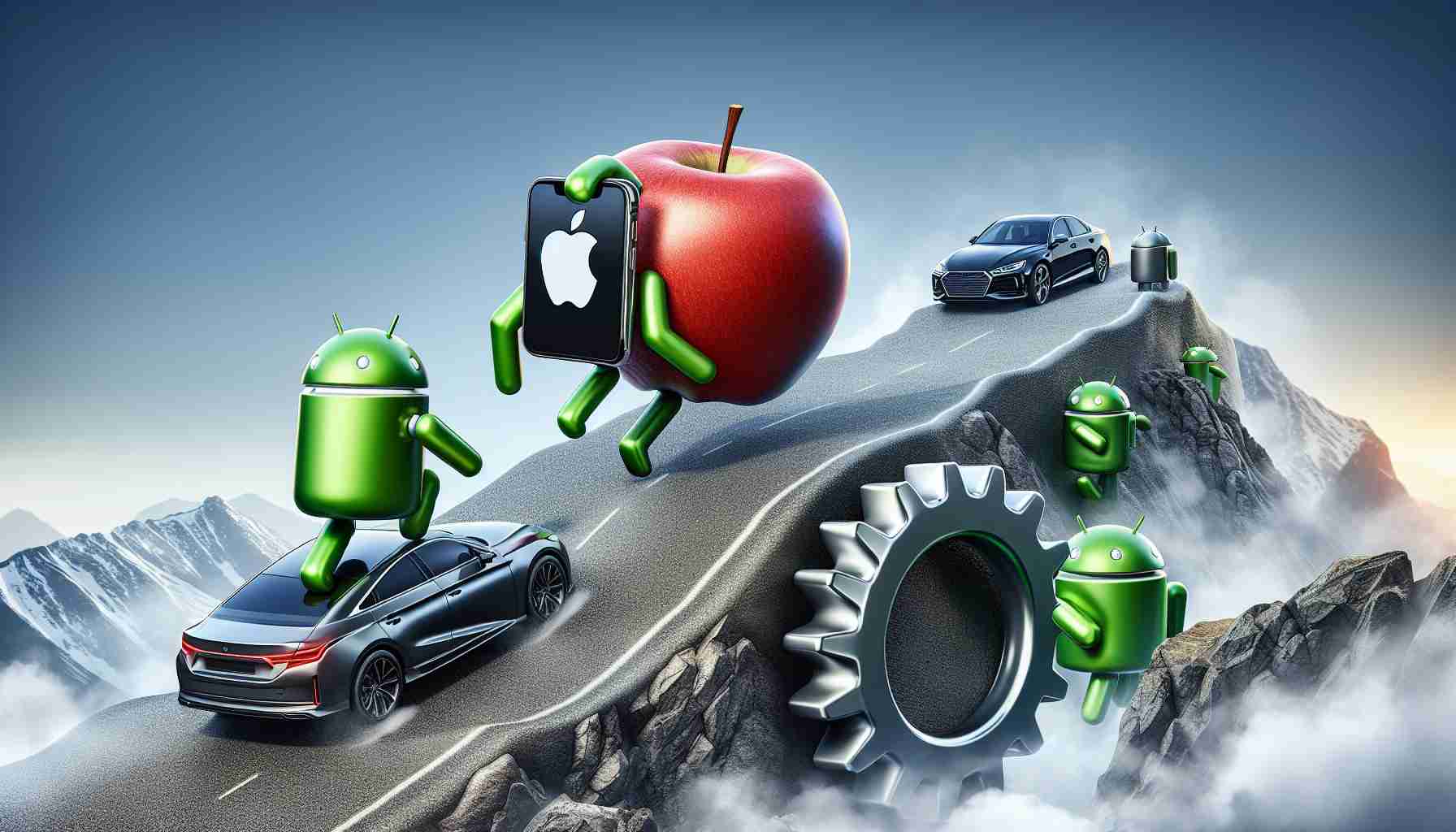As the automotive industry progresses, in-vehicle technology has become a pivotal battleground for tech giants. Apple’s CarPlay and Google’s Android Auto stand as fierce competitors, vying for the attention of consumers who increasingly consider connectivity features when purchasing new vehicles. These systems, which mirror the functionality of smartphones on a car’s dashboard, are in the thick of an evolution, with updates like Android Auto’s Coolwalk giving users a more refined, multi-app interface.
Despite their rivalry, a shared challenge has emerged with the evolution of integrated automotive software. Carmakers such as General Motors (GM) are charting a new path by sidestepping both Android Auto and CarPlay, opting instead for the Android Automotive OS in their forthcoming models. The bold move by GM, which excluded the phone mirroring systems from its 2024 Blazer EV, however, met with backlash from consumers. Consequently, some manufacturers like Ford and Polestar have stressed their ongoing support for Android Auto and CarPlay.
Google forges ahead with Android Automotive, establishing partnerships to embed its operating system directly into vehicles, offering the independence to include Google services at the discretion of the carmaker. Meanwhile, Apple’s introduction of CarPlay 2.0 has been less than smooth, with only luxury brands like Aston Martin and Porsche on board, leaving the mass market out of reach for the upgraded system.
Three concerning trends loom over Apple’s CarPlay strategy. Firstly, delays in CarPlay 2.0’s deployment may dampen consumer excitement. Google’s Android Automotive is making inroads with major players like Volvo and Ford. Lastly, the shift towards proprietary in-car software, exemplified by Mercedes’ choice to forgo CarPlay, may limit third-party platform adoption. In response to setbacks including the cancellation of the Apple Car, the tech giant must pivot its focus to enhancing CarPlay and the features of Apple Maps. The upcoming months will be crucial to Apple’s standing in the competitive landscape of automotive technology.
Key Questions, Challenges, Controversies:
1. How does consumer preference between Apple and Android ecosystems affect the adoption of CarPlay and Android Auto? Many users prefer to have seamless integration with the mobile devices they already own. Android users may gravitate towards Android Auto, while iPhone users tend to prefer CarPlay. This divide can influence car manufacturers’ decisions on which system to integrate.
2. What challenges do third-party platforms face against in-house automotive software? In-house systems allow carmakers to fully control the user experience and potentially open new revenue streams through services and data. Apple’s CarPlay and Google’s Android Auto must offer significant value to outweigh these benefits for car manufacturers.
3. How do advancements in autonomous driving technology influence the role of smartphone mirroring applications like CarPlay and Android Auto? As vehicles become more autonomous, the role of in-car entertainment and productivity is expected to grow, increasing the importance of integrated systems like CarPlay and Android Auto.
Advantages and Disadvantages:
Advantages of CarPlay and Android Auto:
– Familiar user interfaces for smartphone users.
– Access to a wide array of compatible apps and services.
– Regular updates and improvements from tech-savvy companies.
– Potential for a safer driving experience by reducing the temptation to use the phone directly.
Disadvantages of CarPlay and Android Auto:
– Dependence on a smartphone for operation.
– Limited customization options for car manufacturers.
– Can be less integrated with vehicle-specific features compared to native systems.
For resources and further information on these technologies, you can visit the main domains of the relevant companies: Apple and Google.
The Road Ahead for Apple’s CarPlay:
CarPlay’s future success hinges on its adaptability within a diverse automotive industry where manufacturers pursue their own technology paths. Securing new partnerships and ensuring CarPlay’s compatibility and feature set meets or exceeds those of in-house systems and Android Auto will be vital. Apple’s strength in its loyal user base and brand prestige positions it to remain a key player, but flexibility and innovation will determine if CarPlay can gain ground in this uphill battle.
The source of the article is from the blog lanoticiadigital.com.ar
